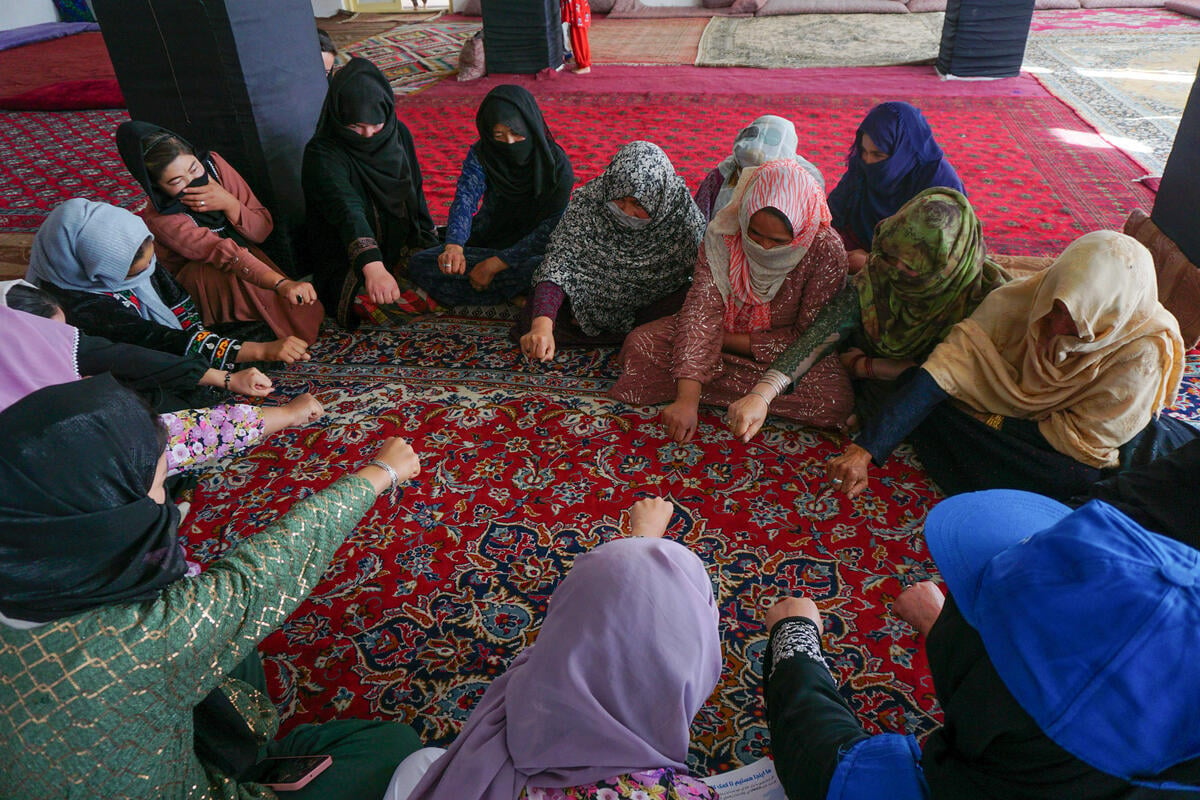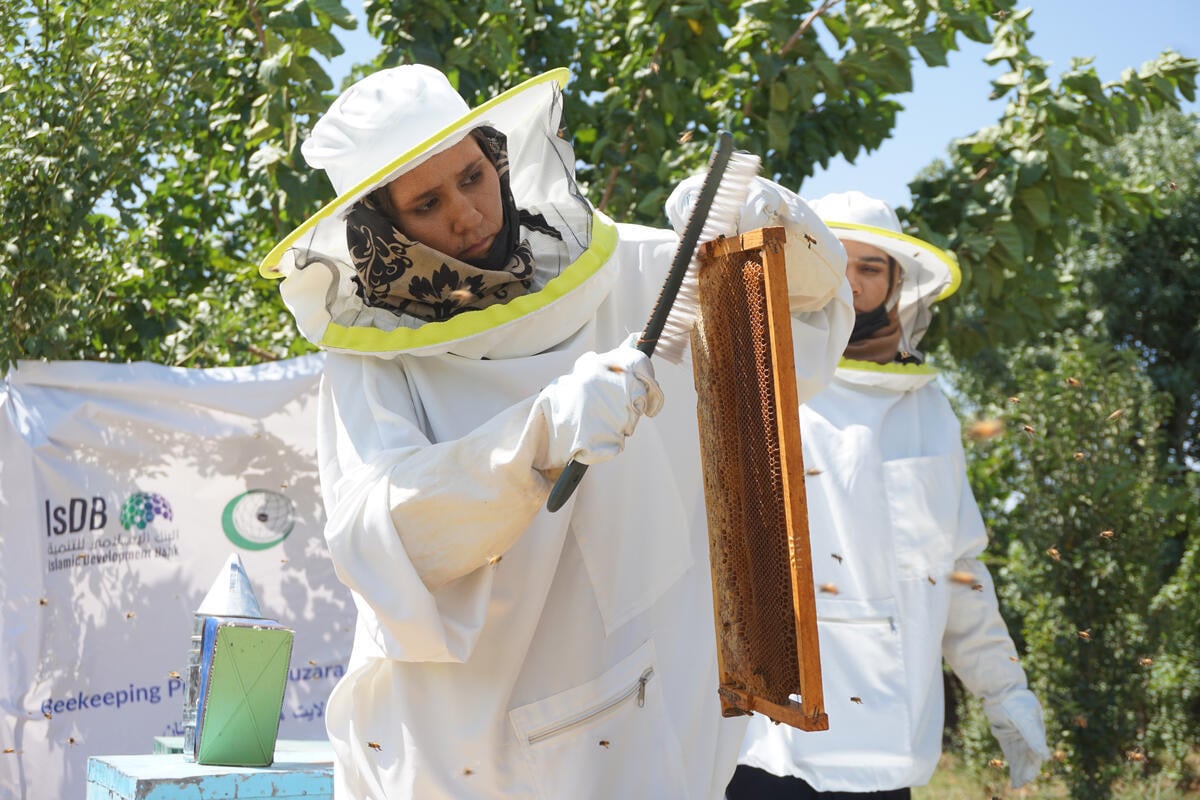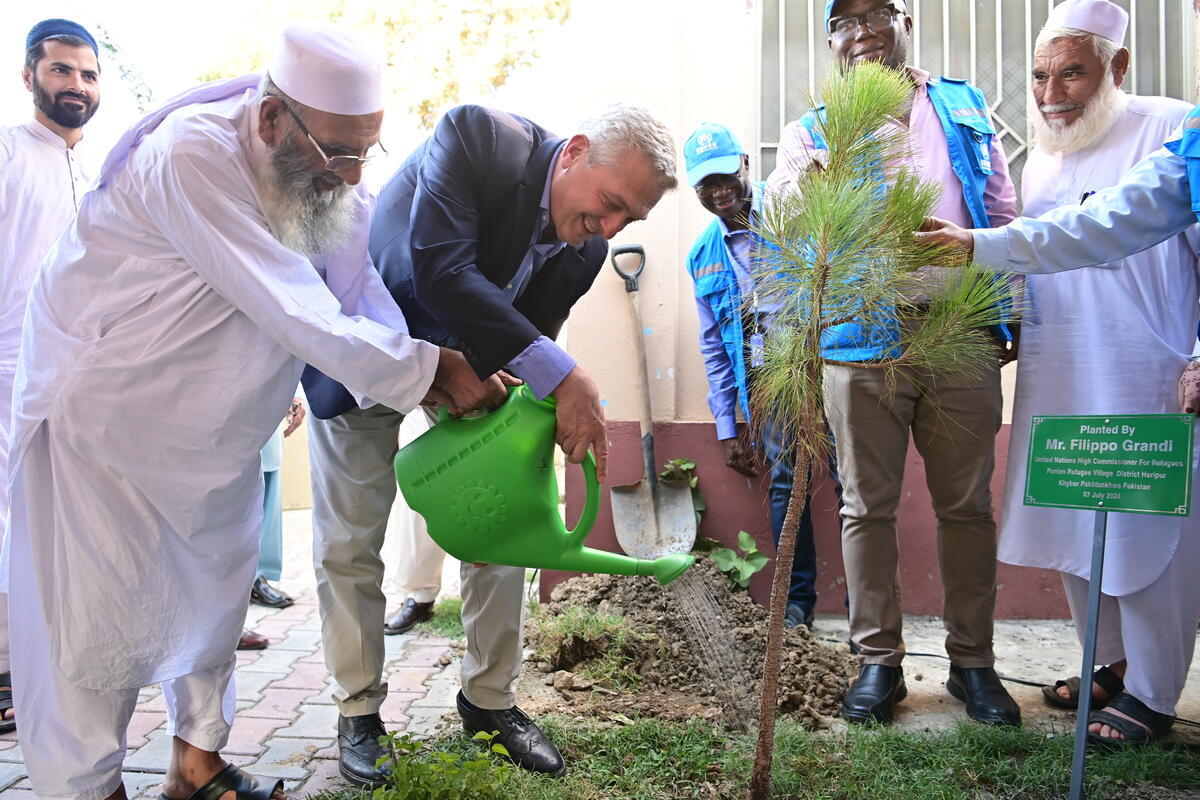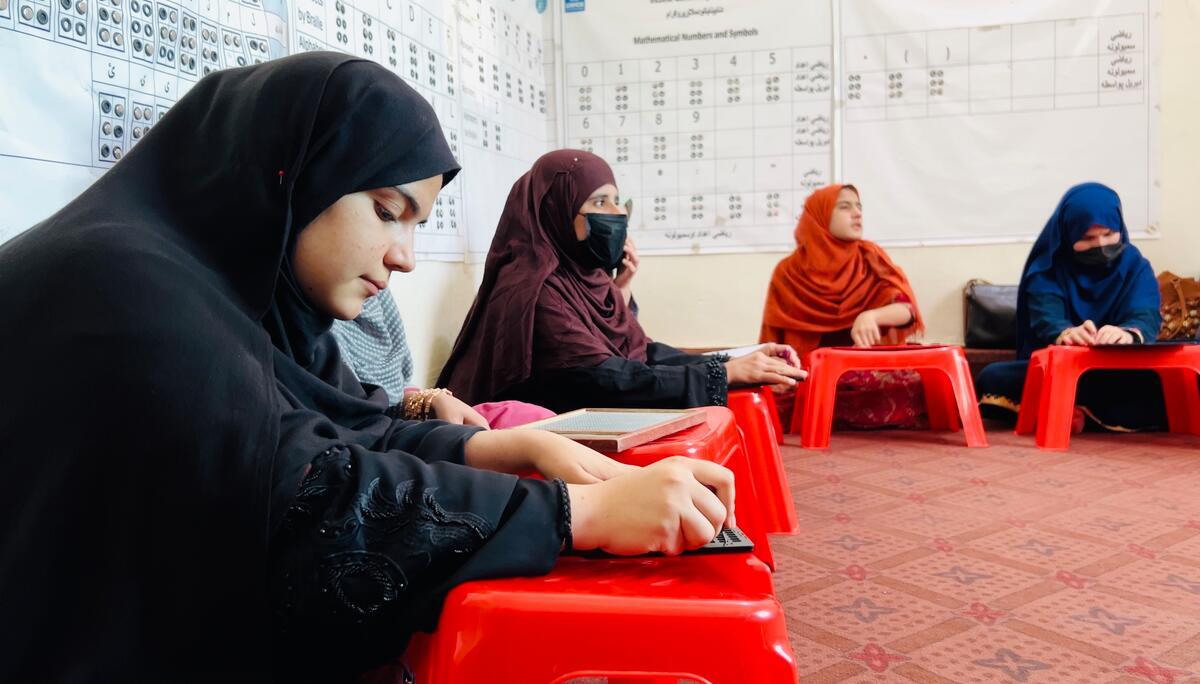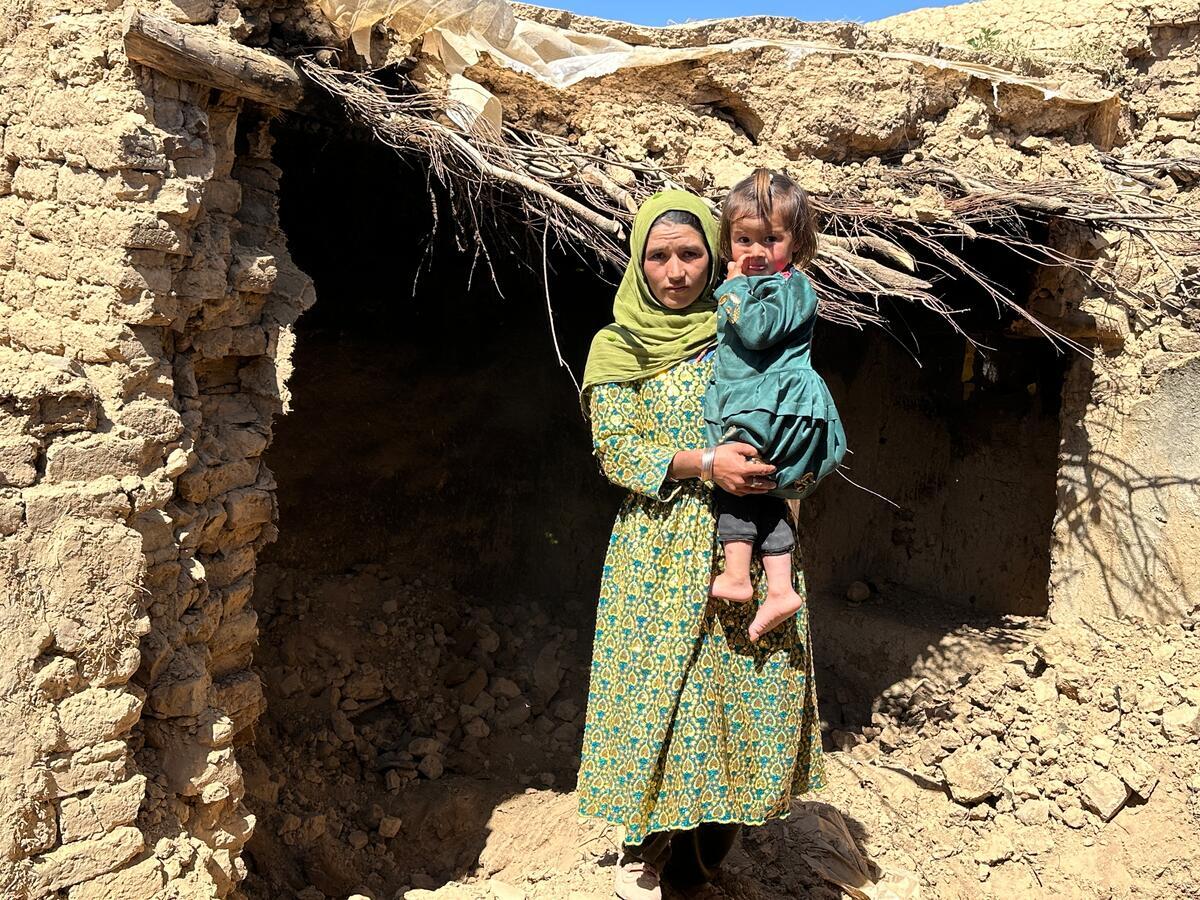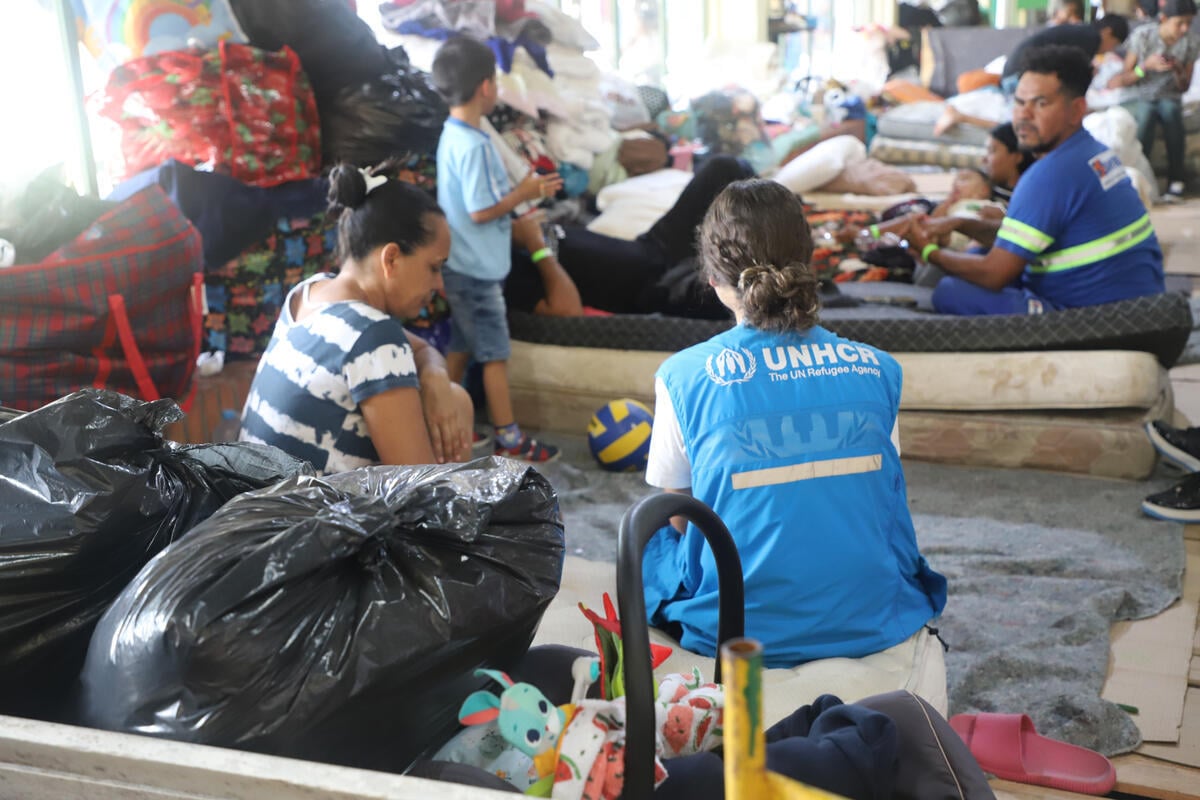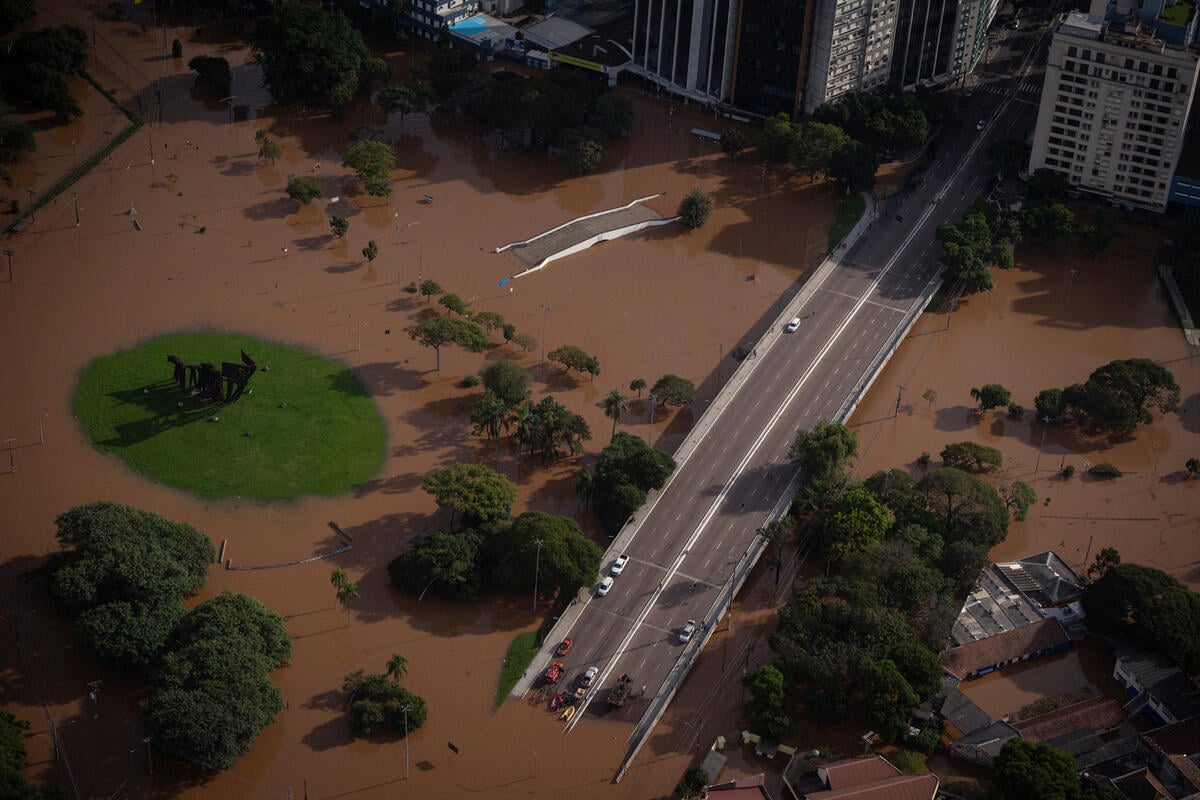Feature: Learning to help other Afghans read and write
Feature: Learning to help other Afghans read and write

MASHAD, Iran, Oct 20 (UNHCR) - Graduation ceremonies are always rather emotional events for students and their families. And for Afghan refugees in Iran graduating from a literacy-training course sponsored by UNHCR, the occasion is especially significant. For many, it is not just the end of a course, but a step forward on the road home.
Graduation ceremonies are taking place in several Iranian cities this month for some 2,000 students who have just finished the two-month course organised by Iran's Literacy Movement Organisation (LMO) with support from the UN refugee agency. It is the second such annual training course - the first one in 2002 was so successful that UNHCR and LMO decided to double the number of participants for this year and to extend the duration of the course from one to two months.
In Mashad, 380 trainees turned up to receive their certificates recently. Kobra Rezai is 28 and has six children, but she still managed to find time for the training. "I did the course to be able to help the people of my country," she says. "I want to return very soon and use what I have learned. The training is very good, it shows us not just how to teach reading and writing, but also helps us to communicate better, to understand the needs of vulnerable people."
Mrs Ghaderi is one of the course's trainers. She agrees that the course doesn't just teach literacy skills. "It is about preparing Afghan refugees for the challenges that await them in Afghanistan, to help them build a brighter future for their home country and for themselves."
The majority of the trainees are in their 20s. Many of them have lived in the Islamic Republic of Iran all their lives and know very little about their own country. So the course incorporates classes in the history and geography of Afghanistan, and each trainee is given a map of Afghanistan to keep. This is one of the most popular parts of the course, Mrs Ghaderi says, and the impact of this information on the refugees has been remarkable.
Mrs Ghaderi remembers a group of trainees who approached her at the beginning of the course, asking her not to call them Afghans. "They said they were born in Iran, went to school in Iran, some got married in Iran, so they felt they were Iranian and didn't want to be called Afghan," she recalls. "But in the last weeks of the course, they told me they realise now that they are Afghan, they're very proud of being Afghan and they want to go back and take responsibility for rebuilding Afghanistan."
Zinat-e Atai, 29, is determined to go back home and share her knowledge. She says she is trying hard to convince her father that now is the time to return. Her only criticism of the course is that "it was too short", but she adds: "The classes on the history and geography of Afghanistan were very beneficial, since I have never been in my own country." One of her main motivations for doing the course was to help Afghan women learn reading and writing skills.
And there is certainly a lot of work to be done in that area. According to most estimates, up to 85 percent of the Afghan population is illiterate. The figures are even higher for women - it is thought that up to 95 per cent of them cannot read or write.
During a recent visit to Tehran, Professor Mahbuba Hoquqmal, the Afghan Minister for Women's Affairs, called on all educated Afghan women to come back home. "Afghanistan is at a very sensitive time in its history," she said. "It desperately needs the skills of educated women to help all those in the country who never had access to any education at all."
UNHCR is committed to ensuring that repatriation to Afghanistan is linked to reconstruction in the country. It is with such considerations that the agency is supporting the LMO training course. "The aim of the course is capacity-building and the empowerment of Afghan refugees," says Afsaneh Ashrafi, UNHCR's community services officer, "not just while they are here in Iran, but also once they go back to Afghanistan, in line with UNHCR's repatriation programme."
Sixty percent of all trainees are female, and all are interviewed for their motivations and aptitude before being allowed to join the course. The candidates are selected with the help of a refugee committee, which was set up for that purpose in 2002. "It is very important for refugees to be empowered to take decisions about projects that concern them, rather than merely be the recipients of help. This, too, is capacity-building," says Ashrafi.
At the end of the course, all the participants receive certificates of attendance, with different grades based on their performance. They also get training kits to help them start on their important work of teaching Afghans to read and write. It is a task the students take very seriously.
"Now I have the diploma, I want to go back to Afghanistan as soon as possible to open an institute for women who went to learn to read and write," says Soraya Hosaini. "I also know English and computer science, and this would be good to teach too."
The 18-year-old is very proud of her diploma and enthusiastic about her plans. And she should be. Afghanistan's future depends on her enthusiasm, and that of other talented young Afghan refugees in Iran and all over the world.
By Marie-Hélène Verney
UNHCR Iran

